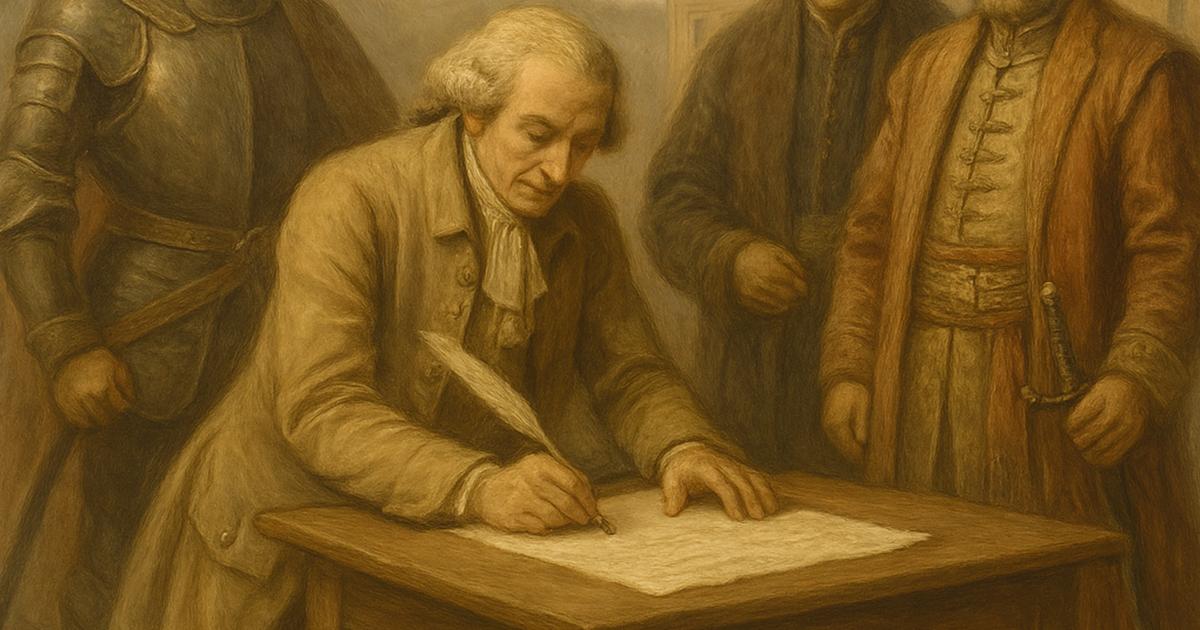
May 3rd Constitution Day - the Polish manifesto of modernity
May 3rd, 1791 is a date that went down in gold in the history of Poland - and beyond. On that day, the Republic adopted the first in Europe and the second in the world (after the US) modern constitution. It was a bold step toward the renewal of a state that was struggling with internal crises and external pressures. The constitution, enacted by the Four-Year Sejm, was designed to strengthen sovereignty, improve the functioning of institutions and introduce the spirit of justice and modernity into state structures.
A bold plan to repair the Republic
The May 3rd Constitution was an act of courage and foresight. It introduced significant political reforms: free election and liberum veto, which paralyzed the work of the Sejm, were abolished, a hereditary monarchy was established, and the bourgeoisie was granted greater political rights. What's more, the document also provided for the protection of peasants, an almost revolutionary move in the 18th century.
The creators of the Constitution - including King Stanislaw August Poniatowski, Hugo Kollataj and Ignacy Potocki - were inspired by the ideals of the Enlightenment and solutions from the West. They wanted to create a modern civil state capable of independent development and defense against interference from foreign powers.
Hope nipped in the bud
Unfortunately, hopes for the restoration of a strong Poland did not last long. Neighboring powers, above all Russia, viewed the ambitious reforms with concern. In 1792 there was a treacherous Targowitz confederation, which, with the support of Russian troops, led to the overthrow of the Constitution. Shortly thereafter, the Commonwealth was torn apart by successive partitions and disappeared from the map of Europe for 123 years.
Taken but not forgotten
Although the Constitution itself was in effect for only a dozen months, its significance has endured for generations. It became a symbol of the struggle for freedom, independence and social justice. Therefore, as early as 1791, May 3 was established as a national holiday. Unfortunately, after the partitions, celebrating it was forbidden.
In the Second Republic, the holiday returned with great force - as an expression of regained freedom and pride in national history. After World War II, during the communist era, it was again outlawed by the communist authorities. It was not until 1990 that the Sejm restored the May 3 Constitution Day as a public holiday and official public holiday.
Today's celebrations - from the capital to the smallest villages
Currently, May 3rd is celebrated solemnly throughout Poland. In Warsaw, official ceremonies are held at Castle Square with the participation of the highest state authorities. Parades, concerts, masses and educational and artistic events are organized in cities and towns. It is a day of reverie, but also of joy at being part of a community that, despite its turbulent history, has never forgotten freedom.
A heritage that obliges
The May 3rd Constitution is more than just a document. It is a manifesto of values that have survived the centuries - courage, modernity, solidarity and the desire to live in a just state. Although its provisions were quickly overturned, it was the spirit of this constitution that inspired later generations to fight for independence.
So may May 3rd be an opportunity for all of us to reflect on the past and motivate us to build a strong, united and democratic Poland - both at home and abroad.
For Polonia - a bridge between history and the future
For the Polish community, this is a special day. It is an opportunity to pause and remind ourselves that freedom is not given once and for all. It's also a chance to pass on to younger generations pride in the history that, although abroad, we are heirs to. Regardless of where we are in the world, May 3 is a reminder that Polishness is not only language, but above all memory, values and shared dreams for a better tomorrow.
| Time Frame | The May 3rd Constitution |
|---|---|
| Date of enactment | May 3rd, 1791 |
| Place | The Royal Castle in Warsaw |
| Authors | King Stanislaw August Poniatowski, Hugo Kołłątaj, Ignacy Potocki |
| Objective | Strengthening the state, limiting the liberum veto, introducing the tri-partite government |
Designation:
- The first in Europe,
- Second in the world (after the U.S. in 1787),
- Symbol of the struggle for a modern, just state
Interesting fact
During the passage of the constitution, deputies arrived early and... closed the door so that the opposition would not have time to block the vote. The crowd cheered and the orchestra played Te Deum!







